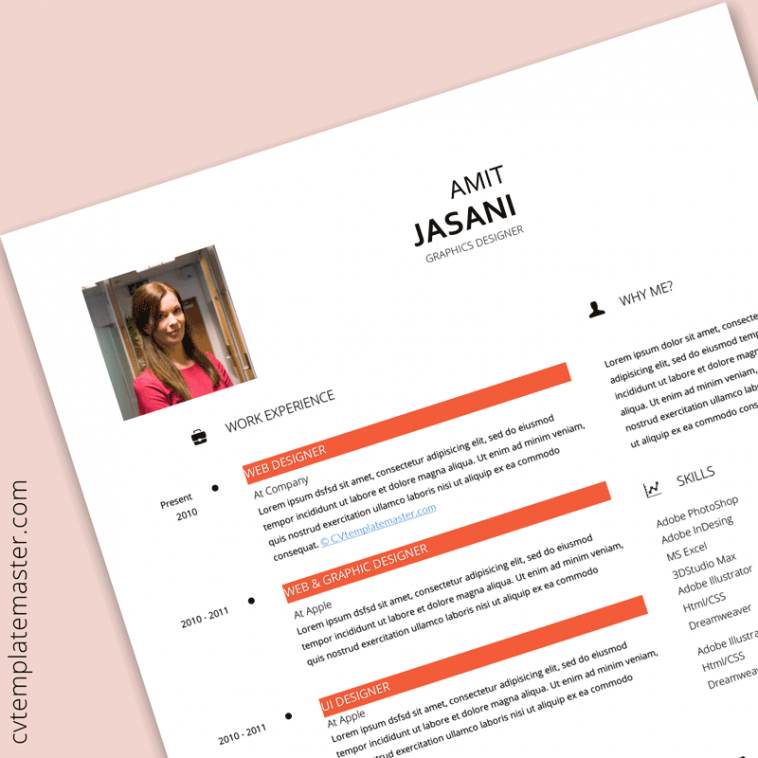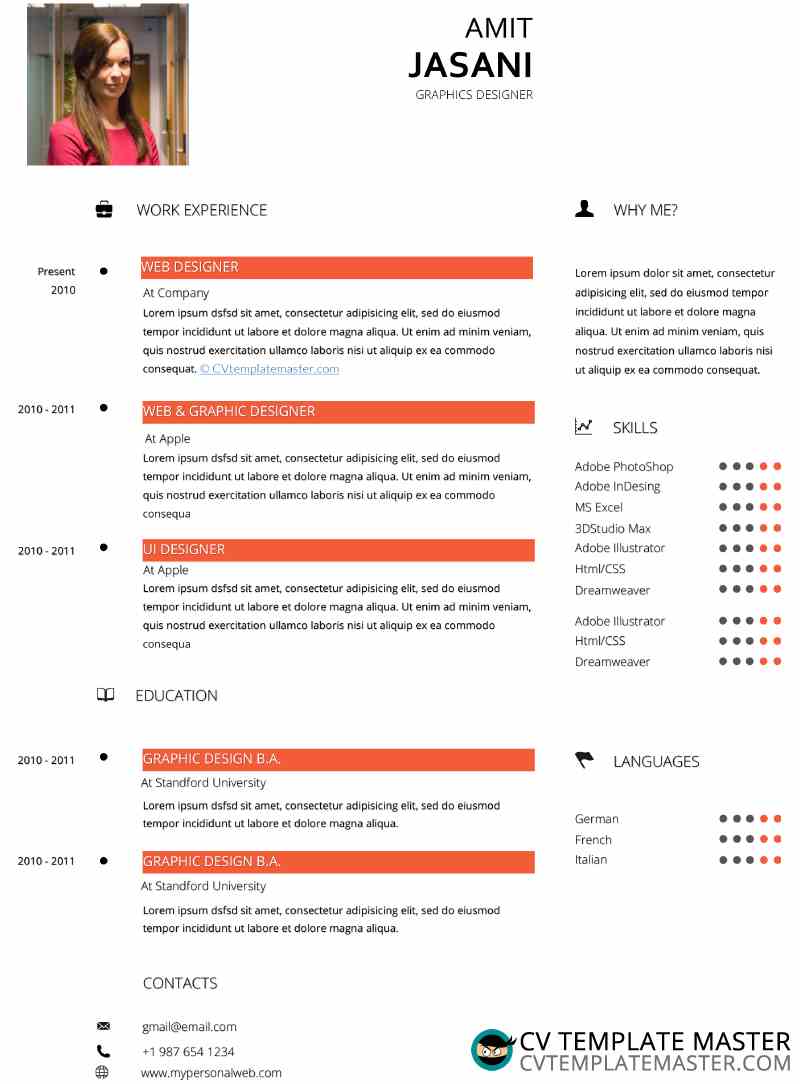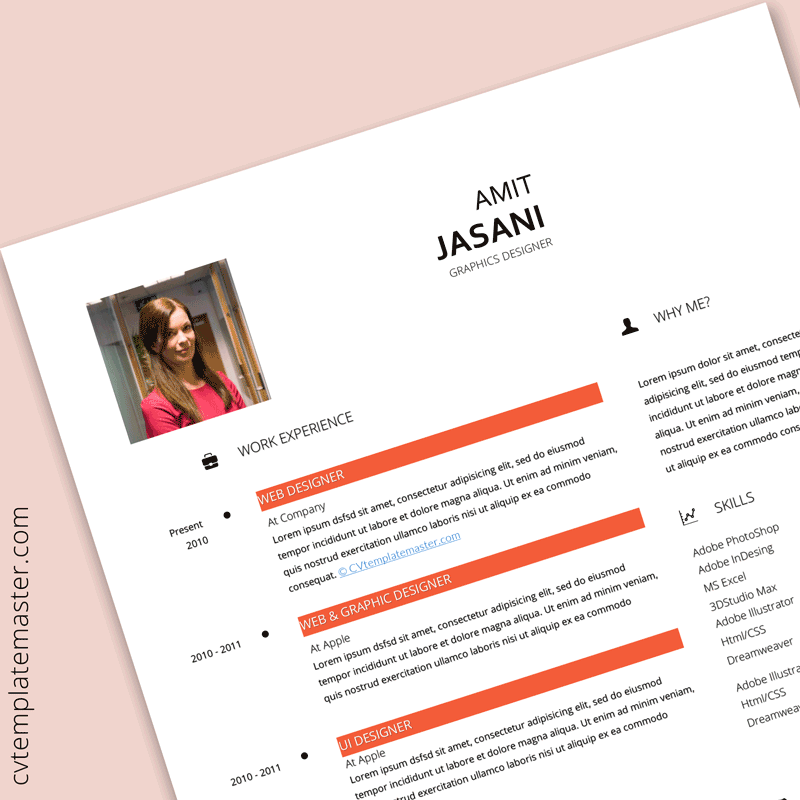Template details:

Here’s a full preview of this CV:

The benefit of including soft skills on your CV
When we think of the word ‘skills’ and how that applies to a CV, we often assume it only refers to the skills which an employer puts on their job advert – like IT skills. However, there is another type of skill called a ‘soft skill’, and although we all have them we probably don’t even realise it! More importantly, we shouldn’t underestimate how they can add value to our CV.
If you are unsure of what the term ‘soft skills’ is referring too, then read on for some fantastic tips and advise on what a soft skill is, how important they are to both you and your employer, and how you can effectively apply them to your CV…
What is a soft skill?
A soft skill is essentially a general attribute which is often self-taught and developed through life and a working environment. A soft skill is not specific to a job or industry, and although you can train and develop a soft skill, it isn’t always necessary and are often gained through experience.
A soft skill can describe many different attributes, from communication skills to leadership qualities. The list of soft skills could go on forever, but here are the most common:
- Leadership/management
- Problem solving
- Team working
- Adaptability
- Organisation
- Time keeping
- Creative thinking
Why are soft skills important to an employer?
In most roles you’d be expected to have good communication skills, good team working skills, be able to adequately problem solve, and be flexible to change and adapt with the business – to name but a few. Although a set of specific skills may be required for a role, your soft skills are required for every role no matter the industry.
Having a good amount of the most common soft skills would be expected by every employer, and would allow the employee to blend in easily with the company, work well with other team members, provide a consistent performance, and be eligible for promotion or to help train new team members.
How do I attain these soft skills?
There are many soft skills that you pick up and develop through school, college and university; whether it’s through a class project, a presentation, a work experience placement, and general interaction with your friends and teachers.
Developing these soft skills continues through work, and although they are mainly self-taught you will often receive additional training and support from co-workers, supervisors and managers.
An employee who struggles in just one aspect of an important soft skill can struggle to function well as part of a team. If you are aware of a soft skill that needs improvement, then a good way to solve this and develop that skill further is to speak with your manager and create a plan of action for additional training and support.
There are also courses which specialise in certain soft skills.
How will a soft skill benefit my CV?
Apart from the standard skills an employer would expect to see to perform a role, you also need to provide a list of your soft skills, including examples to add credibility to your CV. The soft skills that you emphasise on your CV will need to be relevant to the role you’re applying for, and with such a huge range of soft skills to showcase, they are not all needed.
If you were applying for a sales role for instance, then your communication skills are the most important. An analytical role would require great problem solving skills, and so on. It doesn’t matter how qualified you are if you are lacking in the right soft skills, or don’t showcase them on your CV. A true insight into how a potential employee might perform in a role could come down to their soft skills, so you shouldn’t underestimate the importance they play on your CV.
How do I showcase my soft skills on my CV?
One of the biggest mistakes made when writing a CV is to make bold statements without backing them up. If you put down that you have great communication skills, how does the employer know that’s true?
If you want to really make an impact you need to backup your claims and provide examples of how you put your awesome soft skills into action in your previous roles. Stating that you have great problem skills is great, but it needs to be followed with something like, ‘I used my great problem solving skills to overcome…’
